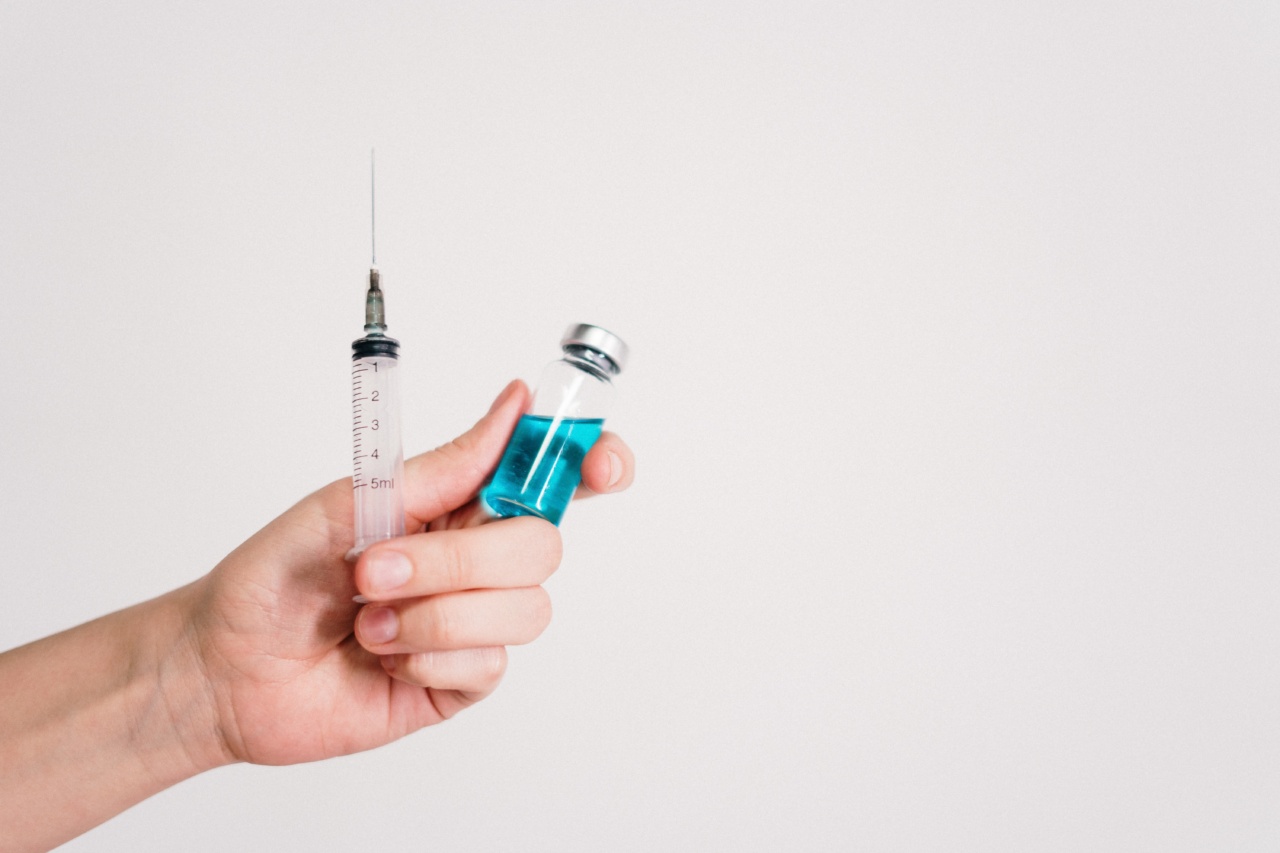Erectile dysfunction (ED) is a common condition that affects millions of men worldwide. It refers to the inability to attain or maintain an erection sufficient for satisfactory sexual performance.
While it can be a source of embarrassment and frustration, it’s important to know that there are various treatment options available to alleviate this condition. This article explores some of the possible treatments and prevention methods for curing erectile dysfunction.
Understanding Erectile Dysfunction
Before delving into the treatments and prevention strategies, it’s essential to understand the underlying causes of erectile dysfunction. A variety of factors can contribute to this condition, including:.
- Physical health issues such as cardiovascular disease, diabetes, obesity, and high blood pressure
- Psychological factors like stress, anxiety, depression, and relationship problems
- Hormonal imbalances, particularly low testosterone levels
- Nerve damage or injury to the pelvic area
- Side effects of certain medications
Medical Treatments for Erectile Dysfunction
When it comes to medical treatments for erectile dysfunction, several options are available:.
1. Oral Medications
Oral medications, such as sildenafil (Viagra), tadalafil (Cialis), and vardenafil (Levitra), are the most commonly prescribed drugs for ED. These medications work by increasing blood flow to the penis, promoting an erection.
2. Injections and Suppositories
For men who do not respond to oral medications, injecting a vasodilator drug directly into the penis can help achieve an erection. Another option is inserting a suppository into the urethra, which stimulates blood flow to the penis.
3. Vacuum Devices
A vacuum erection device is a non-invasive treatment option that involves placing a cylindrical device over the penis. It uses negative pressure to draw blood into the penis, creating an erection.
A constriction ring is then applied at the base to maintain the erection.
4. Penile Implants
In cases where other treatments fail, surgical implantation of penile prostheses may be recommended. These implants allow men to manually control the timing and duration of their erections.
Lifestyle Changes and Natural Remedies
In addition to medical treatments, certain lifestyle changes and natural remedies can also help prevent and treat erectile dysfunction:.
1. Regular Exercise
Engaging in regular physical activity promotes cardiovascular health and improves blood circulation, both of which are crucial for erectile function. Aim for at least 30 minutes of moderate exercise most days of the week.
2. Healthy Diet
A well-balanced diet that includes fruits, vegetables, whole grains, lean proteins, and healthy fats can contribute to better overall health, including sexual health. Avoid excessive intake of processed foods, saturated fats, and sugary drinks.
3. Weight Management
Obesity is a known risk factor for erectile dysfunction. Losing excess weight through a combination of healthy eating and regular exercise can help improve erectile function.
4. Stress Reduction Techniques
Chronic stress and anxiety can disrupt sexual functioning. Practicing relaxation techniques, such as deep breathing exercises, mindfulness meditation, or engaging in enjoyable hobbies, can help alleviate stress and improve erectile function.
5. Limiting Alcohol and Tobacco Use
Excessive alcohol consumption and smoking can impair blood flow and damage blood vessels, leading to erectile problems. Limit alcohol intake and consider quitting smoking altogether.
6. Communication and Counseling
Erectile dysfunction can strain relationships and cause emotional distress. Open communication with your partner and seeking professional counseling or therapy can help address underlying psychological factors contributing to the condition.
Prevention Strategies
While some risk factors for erectile dysfunction cannot be controlled, such as age or certain medical conditions, adopting the following preventive measures can minimize the likelihood of developing this condition:.
1. Regular Check-ups
Scheduling routine medical check-ups can help detect and address any underlying health conditions that may contribute to erectile dysfunction. Regular monitoring of blood pressure, cholesterol levels, and blood sugar can significantly reduce the risk.
2. Safe Sex Practices
Engaging in safe sex practices reduces the risk of sexually transmitted infections (STIs), which can cause complications affecting sexual function. Using condoms consistently and getting tested regularly for STIs is crucial.
3. Avoiding Illicit Drugs
Substance abuse, including the use of illicit drugs, can lead to erectile dysfunction. Avoiding or seeking help for drug dependency can help maintain sexual health.
4. Maintaining a Healthy Relationship
A supportive and fulfilling relationship can contribute to overall well-being, including sexual health. Open communication, trust, and intimacy are essential for maintaining a healthy sexual relationship.
Conclusion
Erectile dysfunction is a common condition that can significantly impact a man’s self-esteem and overall quality of life.
Fortunately, there are numerous treatments available, ranging from medical interventions to lifestyle changes and natural remedies. Understanding the causes, symptoms, and prevention strategies for erectile dysfunction can empower individuals to take control of their sexual health and seek appropriate treatment when needed.






























